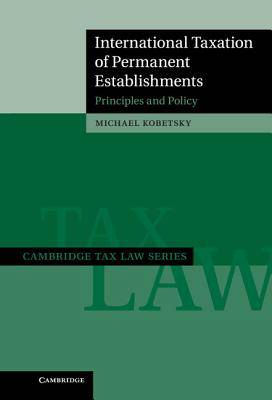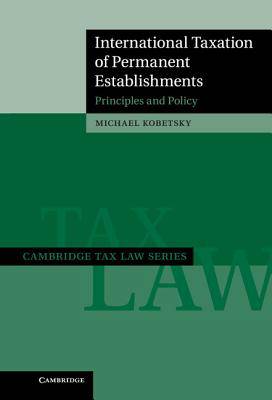
Bedankt voor het vertrouwen het afgelopen jaar! Om jou te bedanken bieden we GRATIS verzending (in België) aan op alles gedurende de hele maand januari.
- Afhalen na 1 uur in een winkel met voorraad
- In januari gratis thuislevering in België
- Ruim aanbod met 7 miljoen producten
Bedankt voor het vertrouwen het afgelopen jaar! Om jou te bedanken bieden we GRATIS verzending (in België) aan op alles gedurende de hele maand januari.
- Afhalen na 1 uur in een winkel met voorraad
- In januari gratis thuislevering in België
- Ruim aanbod met 7 miljoen producten
Zoeken
€ 186,95
+ 373 punten
Omschrijving
The effects of the growth of multinational enterprises and globalization in the past fifty years have been profound, and many multinational enterprises, such as international banks, now operate around the world through branches known as permanent establishments. The business profits article (Article 7) of the OECD model tax treaty attributes a multinational enterprise's business profits to a permanent establishment in a host country for tax purposes. Michael Kobetsky analyses the principles for allocating the profits of multinational enterprises to permanent establishments under this article, explains the shortcomings of the current arm's length principle for attributing business profits to permanent establishments and considers the alternative method of formulary apportionment for allocating business profits.
Specificaties
Betrokkenen
- Auteur(s):
- Uitgeverij:
Inhoud
- Aantal bladzijden:
- 468
- Taal:
- Engels
- Reeks:
Eigenschappen
- Productcode (EAN):
- 9780521516327
- Verschijningsdatum:
- 15/09/2011
- Uitvoering:
- Hardcover
- Formaat:
- Genaaid
- Afmetingen:
- 155 mm x 231 mm
- Gewicht:
- 793 g

Alleen bij Standaard Boekhandel
+ 373 punten op je klantenkaart van Standaard Boekhandel
Beoordelingen
We publiceren alleen reviews die voldoen aan de voorwaarden voor reviews. Bekijk onze voorwaarden voor reviews.









